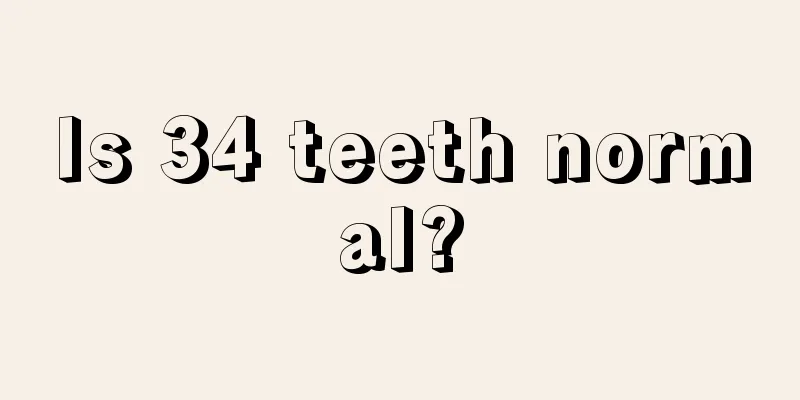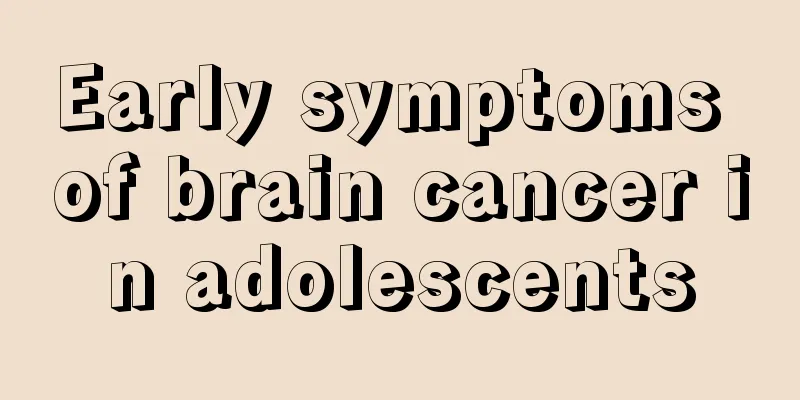Is 34 teeth normal?

|
As we all know, people have two sets of teeth in their lifetime, one set is deciduous teeth and the other is permanent teeth, and the number of teeth in the two sets is different. Normal people usually have 20 deciduous teeth, which will start to grow slowly at about six months old and will be fully grown at about three years old. The number of permanent teeth is generally 32, which will be fully grown at the age of 12. So is 34 teeth normal? First, are 34 teeth normal? Permanent teeth: are a person’s second set of teeth, totaling 32. From around the age of 6, the deciduous teeth begin to fall out gradually, and the permanent teeth begin to erupt and replace the deciduous teeth. Except for the third molars, the remaining 28 teeth usually erupt by around the age of 12. The third molars (wisdom teeth) erupt relatively late, between the ages of 18 and 30. Some never erupt or only partially erupt (a total of 4 teeth). That is, during the permanent tooth period, a normal person has 28-32 teeth. Second, when people grow up to 16 to 18 years old, the number of teeth between people may be different, because some people will continue to grow teeth (wisdom teeth, also known as "third molars"), while some people will no longer grow teeth. The situation for those who continue to grow teeth is also different. Some people may grow 2 wisdom teeth, reaching a total of 30. And people who grow 2 wisdom teeth may have them on the top, and some may grow them on the bottom; others may grow 4 wisdom teeth, reaching the upper limit of 32 human teeth. Are 34 teeth normal? Theoretically, an adult should have 32 teeth, symmetrically distributed on the left and right. The distribution of these 32 teeth is: 2 incisors, 1 canine, 2 bicuspids and 3 molars in each upper and lower row on each half. The four molars at the back are also called wisdom teeth, and some people do not grow wisdom teeth. When one or two teeth fall out due to aging or external force, it will not have much impact on your health. They can be repaired by making porcelain teeth or wearing dentures. However, if the teeth fall out gradually and the number is less than 20, it will gradually affect the health of the body. If a person has less than 20 teeth, the chewing function will inevitably be weakened, which means that the food eaten cannot be fully chewed, which will directly affect the gastrointestinal digestive function; in addition, the lack of teeth will also have a great impact on speech pronunciation. If any teeth fall out, it is best to repair them in time. Having more than 20 functional teeth has many benefits for the human body and helps prolong life. |
<<: Can all teeth be replaced?
>>: What should I do if there is tartar inside my teeth
Recommend
Does chocolate refresh you?
Chocolate is a kind of dessert that people like t...
What are the methods for checking skin cancer
Although skin cancer is not very common in our da...
Experts explain the five symptoms of gallbladder cancer
Gallbladder cancer is a malignant tumor with obvi...
What are the effects of Lianhuafeng Tea Pills
Lianhua Peak Tea Pills are mainly composed of clo...
What will severe moisture cause
Now is a season with relatively humid climate and...
Can washing your hair with salt water treat hair loss? Does it have any other effects?
For many female friends, many people will experie...
How to choose a pillow core
How to choose a pillow core? Whether a pillow is ...
Can red wine and onions be eaten together
When it comes to red wine, everyone must think of...
How to improve the treatment rate of advanced liver cancer? Several factors affecting the treatment of advanced liver cancer
Compared with other malignant tumors, liver cance...
What are the symptoms of high thyroid stimulating hormone?
The thyroid gland is one of the most important en...
Is it okay to run at twelve o'clock at night?
Night running is becoming more and more popular. ...
What is the best way to remove cold and dampness?
In fact, from the perspective of traditional Chin...
Will I ovulate three days before my period?
Many people have the common sense that menstruati...
How to use diapers for babies in summer
Diapers are essential items for caring for babies...
What causes black forehead? Beware of excessive liver fire
In daily life, it is often said that the forehead...









